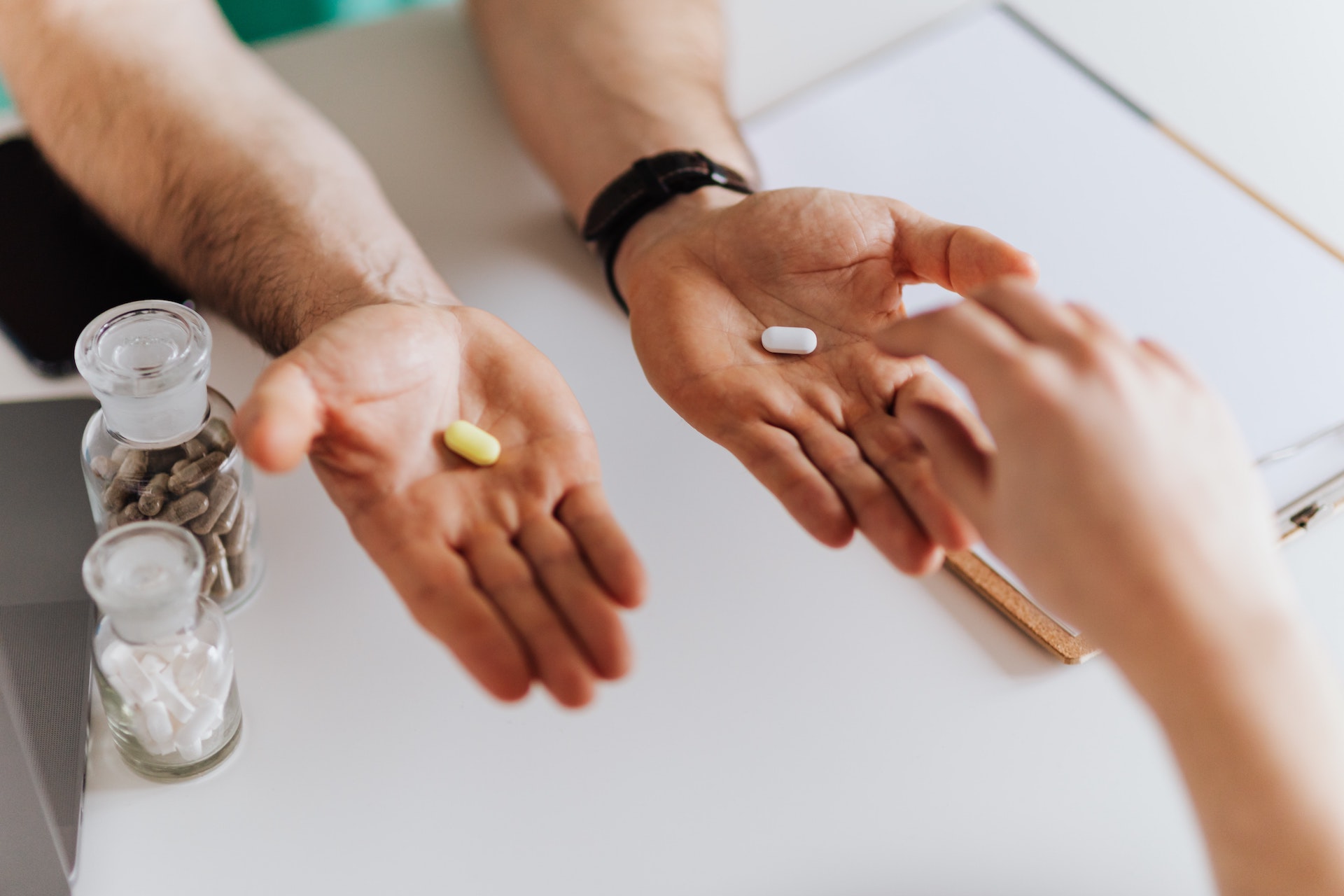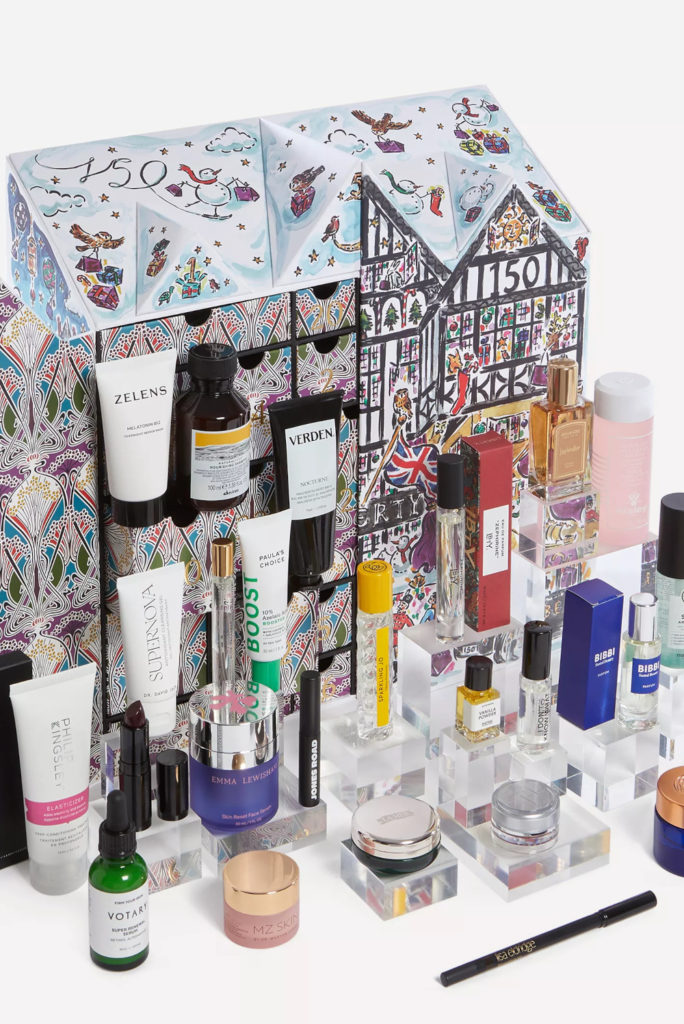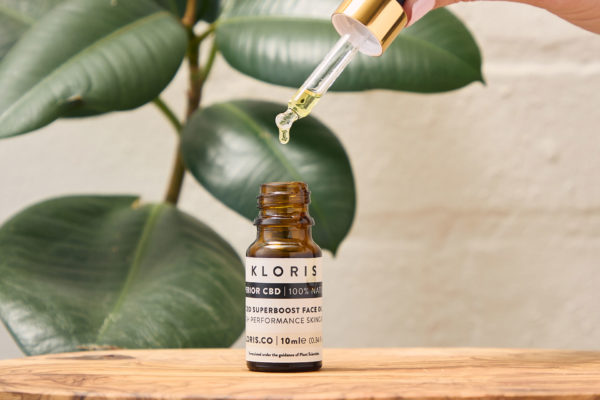Menopause & Hormones: What You Need to Know
By
2 years ago
From HRT to supplements to nutrition

Expert advice on how best to manage your hormones during the menopause.
Menopause & Hormones: What You Need to Know
The menopause transition is finally drawing the attention it deserves, so why are we still confused? Alas, shining a spotlight on a condition that millions of women previously faced in silence is only the beginning. There’s a dearth of knowledge about just how pervasive an effect low oestrogen, in particular, can have on a woman’s physical and psychological health, beyond hot flashes and vaginal dryness – the two most flippantly bandied about symptoms. Except, the menopause is no joke. I hate to be alarming, but lesser known side effects can include anxiety, insomnia, brain fog, low mood/libido/energy, tingling extremities, stress incontinence… The list (sadly) goes on, due to the fact that there are oestrogen receptors on every cell in the body, therefore when levels drop you could be facing a tsunami of symptoms (at least 34), which go undetected.
On the bright side, it is possible to reach status quo by taking hormone replacement therapy, though HRT is not for everyone. What is encouraging about managing menopause today is the supporting role that lifestyle tweaks can have on symptoms from skincare to nutrition and supplements.
Find an expert
As someone who’s spent six years trying to make sense of the vacillating advice I’ve been given concerning my own hormone levels, it is worth knowing that GPs, despite their best attempts, are not necessarily menopause specialists. Neither are many gynaecologists, I hasten to add. ‘Menopause is a sub-specialism. You need the necessary training to understand the complexity of HRT and the underlying conditions that could be at play,’ says consultant gynaecologist Anne Henderson from The Amara Clinic (gynae-expert.co.uk), who is a longstanding member of the British Menopause Society (thebms.org.uk), which provides a list of practitioners who have completed post graduate training and research in the subject of menopause. ‘Every woman should ask to be referred to a BMS accredited specialist,’ explains Dr Henderson who has recently opened an accredited menopause clinic in Tunbridge Wells in conjunction with The Cosmetic Skin Clinic, tackling the totality of concerns women face during the menopause transition including, among other things, aesthetic treatments.
What one has to do with the other largely boils down to the two c’s: confidence and collagen. ‘There is often this cliff-edge moment when women come to see me with skin concerns related to the menopause transition. They’re sleeping less and looking more tired, experiencing dryness and skin laxity, all of which affects not only their looks but their self esteem,’ explains aesthetic doctor of the year, Dr Sophie Shotter (drsophieshotter.com).
Consequently, she has trained in hormone therapy to offer it alongside aesthetic medicine. ‘During the consultation process it would often become clear that there was more going on than just facial ageing – by testing and treating a woman’s hormone health I can address the whole person, not just their appearance,’ she says.
How to navigate the HRT minefield
Six years ago, aged 43, I began experiencing debilitating insomnia, heart palpitations and a cacophony of mystery symptoms I now know were the result of the perimenopause. When a blood test eventually confirmed the triple threat of female sex hormones: oestrogen, progesterone and testosterone were drastically low ‘for my age’, I was prescribed HRT, a basic packet of pills containing a sequential dose of oestradiol and dydrogesterone, a progestin.
Through my own research I later switched to body identical hormones in a transdermal preparation, except for in the case of progesterone which I take daily in a tablet on the advice of consultant gynaecologist Tania Adib, who explained the difference between the pill I’m taking now (Utrogestan) and the synthetic progestin I was prescribed initially. Progesterone is a naturally occurring hormone in the body, whereas progestin is a synthetic, lab-created hormone that is designed to mimic progesterone. While progesterone isn’t responsible for the vast majority of menopause symptoms, it is key to protecting the lining of the womb and helps to maintain calm and relaxation when taken at night.
Alongside progesterone, Dr Henderson says Lenzetto, a spray form of estradiol that can be progressively increased in dose, is a new-gen formulation that’s more precise than gels. Another way to take oestrogen transdermally is through a patch, though Dr Henderson points out that not all patches are created equal and highlights Estradot, a tiny discrete sticker that delivers a ‘naturally occurring form’ of oestrogen through the skin.
Testosterone has hit headlines recently as it has a role to play in improving drive and libido, however it is not yet licensed for use in the UK as a menopause treatment, therefore it needs to be prescribed by a doctor through a compounded pharmacy at your own risk. Many doctors stand by compounded medications, yet some remain sceptical, like Dr Henderson, who prefers to err on the side of caution. She imports Androfeme – ‘the only body identical testosterone’ – from Australia to prescribe to her clients, if required.
Optimise your nutrition

Shotter works in conjunction with a nutritionist who specialises in hormone imbalances, gut health and unexplained weight gain (a confidence-robbing side effect of menopause), referring her patients when relevant to nutritionist Pippa Campbell (pippacampbellhealth.com) who runs an all-female practice that helps identify and treat the root cause of women’s hormone, weight and gut issues through thorough testing.
Gut health specialist Eve Kalinik adds that while nutrition should ideally be personalised and identified by thorough hormone analysis, gut (stool) tests and bloodwork to pinpoint specific dietary gaps or underlying health conditions, such as an underactive thyroid that can crop up during menopause, some basic dos and don’ts apply, beginning with a regular eating pattern. ‘Fasting is not great for women approaching menopause. When female sex hormones begin to deplete, the adrenal glands can kick in to compensate, therefore leaving long periods of time in between meals can have an adverse effect and even exacerbate menopausal symptoms,’ says Eve.
‘Sugar, caffeine and alcohol are not your friends when it comes to balancing hormones,’ she stresses.
A good rule of thumb, she suggests, is to eat a diet rich in omega-3 fatty acids, with adequate protein and a wide variety of coloured vegetables, which will help to stabilise mood and feed the gut microbiome with dietary fibre, an often-missed but necessary nutrient that studies now show helps to populate gut microbes. When in doubt, cook from scratch and follow the Mediterranean diet, says Eve.
Do supplements work for menopause?
Supplements can play their part in hormonal health but are often oversold. Dr Federica Amati is a medical scientist and accredited nutritionist specialising in women’s health. Dr Amati says she is sceptical of multivitamins, and prefers instead to focus on a whole foods approach high in plants and polyphenols found in extra virgin olive oil. She does, however, stand by the Indi Body supplement, a ‘diet enhancer’ of dried and powdered whole plants that contains adaptogens, polyphenols and antioxidants shown to be anti-inflammatory and to improve gut health. Using no bulking agents, artificial additives or chemical preservatives, found in some off-the-shelf vitamins, Indi products are gluten and allergen free.
Gynaecologist Tania Adib suggests her patients take an omega-3 supplement to help lubricate joints, a probiotic for gut health and vitamin D to manage mood and protect against heart and bone health.
Dr Shotter finds supplementing with NAD (nicotinamide adenine dinucleotide) to be effective. NAD occurs naturally in the body and plays a role in generating energy and improving cellular health. Nuchido Time+ is a patented formulation that has been clinically proven in a blind placebo-controlled study to increase NAD+ levels (from £65 for 30 day supply, nuchido.co.uk).










